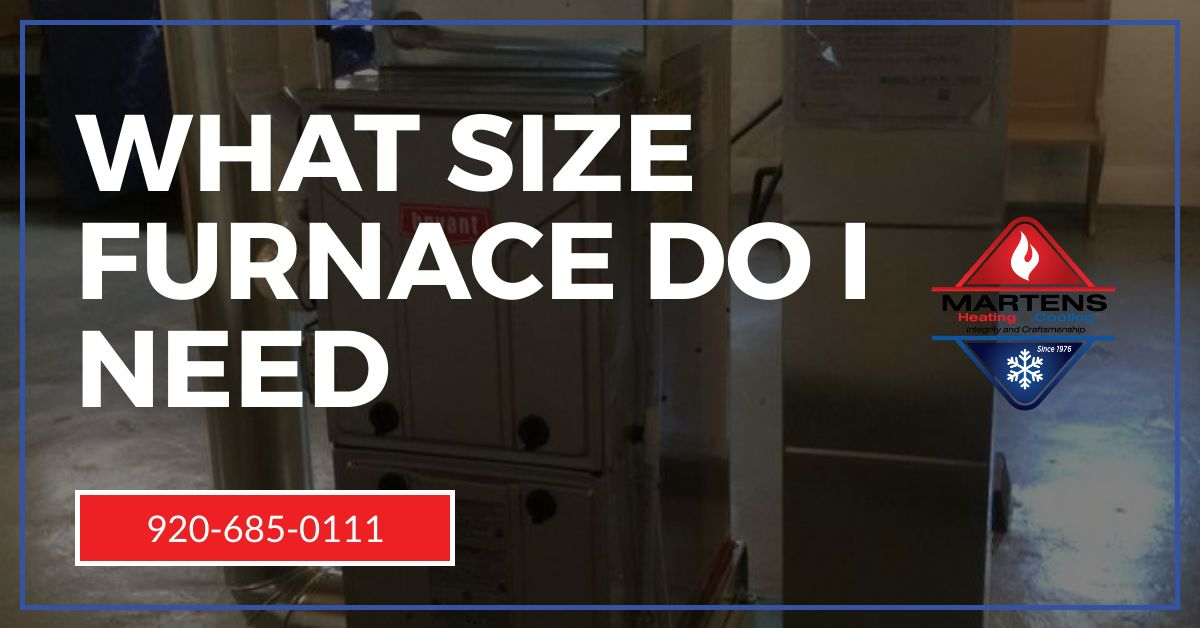What furnace size do you require for your home? The appropriate furnace size is determined mostly by the square footage of a residence. Here’s how to figure out what size furnace you’ll need at home.
What Size Furnace Do I Require To Efficiently Heat My Home? How Many BTUs Will I Require?
A properly sized furnace is essential for every home. A well-heated home is essential not just for the occupants’ comfort but also for their safety. Winter weather can cause pipes to freeze or break, especially in colder climates. Furthermore, homes that aren’t properly heated can drastically increase a homeowner’s utility expenditures. Using an undersized unit can also lead to furnace repairs down the road.
BTUs, or British Thermal Units, are used to measure the capacity of furnaces and boilers. This is how much energy it takes to raise the temperature of one pound of water by one degree Fahrenheit. Furnaces exist in a variety of sizes and BTU levels to meet the vast range of household heating needs. Here’s how to figure out how big a furnace you’ll need. Remember that this is only an estimate, and your qualified HVAC installation will be able to identify the exact size and type that’s right for your home.
When It Comes To Furnace Size, The Size Of The House Is The Most Important Consideration
The square footage of the home is the most important consideration in selecting furnace size. The blueprint for the house or the closing documents may contain this information. If you don’t have these numbers, measure “rectangles” on each floor of the house and multiply the width by the length for each rectangle. Add these figures together to get the overall square footage of the home.
For a fast reference, consider the following instances. The usual recommendation for a 100- to 200-square-foot room, such as a modest home office, is 4,000 to 8,000 BTUs. Between 30,000 and 45,000 BTUs is recommended for an area of 800 to 900 square feet, such as a compact home or two-bedroom townhouse. To heat a 2,000-square-foot home efficiently, you’ll need between 80,000 and 115,000 BTUs.
You’ll Need 30 To 60 Btus Per Square Foot Of Your Home, Depending On Your Environment
While the overall size of the home is the most essential element in deciding furnace size, the climate also plays a role. The average residence in the United States will require 30 to 60 BTUs per square foot, depending on the climate zone heating factor of the region.
The following formula, which homeowners may rapidly calculate to determine how many BTUs per square foot are required, is used by a furnace size calculator or heating BTU calculator:
Household Square Footage x Climate Zone Heating Factor = Total BTU Output Needed to Heat the Home Efficiently
The warmest zone is Zone 1, while the coldest zone is Zone 7. There are seven main climate zones. To heat properly in Zone 1 (which encompasses southern Texas and much of Florida), residences will require 30 to 35 BTUs per square foot. Homes in Zone 7 (which includes northern Wisconsin and the majority of Maine) will require up to 60 BTUs per square foot. Residences in Zones 1 through 3 may not require a furnace at all and may be able to adjust the temperature using a heat pump; however, homes in Zones 4 through 7 will normally require a furnace’s heating power.
The Amount Of Insulation In Your Home Might Influence How Big Of A Furnace You Require
The home’s insulation is an often-overlooked component when utilizing a BTU calculator. Insulation is important for energy efficiency because it helps to maintain a home’s current temperature, keeping it warm in the winter and cool in the summer. Because the heating and cooling systems do not have to work as hard in a well-insulated home, energy bills will be reduced. A poorly insulated space, on the other hand, will have air leaks, necessitating HVAC systems to pump out more air to meet the homeowner’s desired temperature.
Do you require a new furnace?
Make a phone call to a reputable professional at Marten’s Heating & Cooling for your furnace replacement needs. Get free, no-obligation estimates from local specialists.

